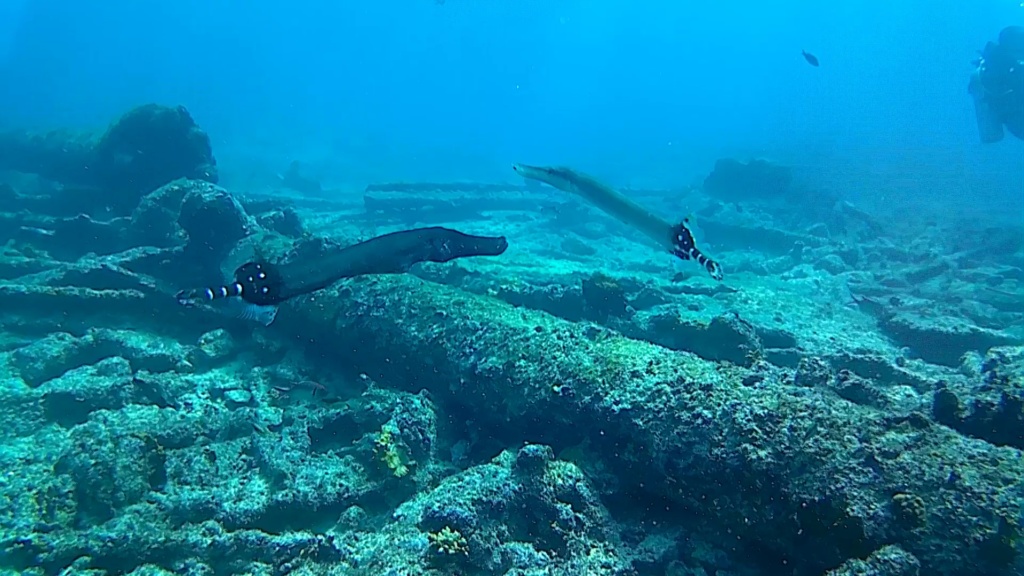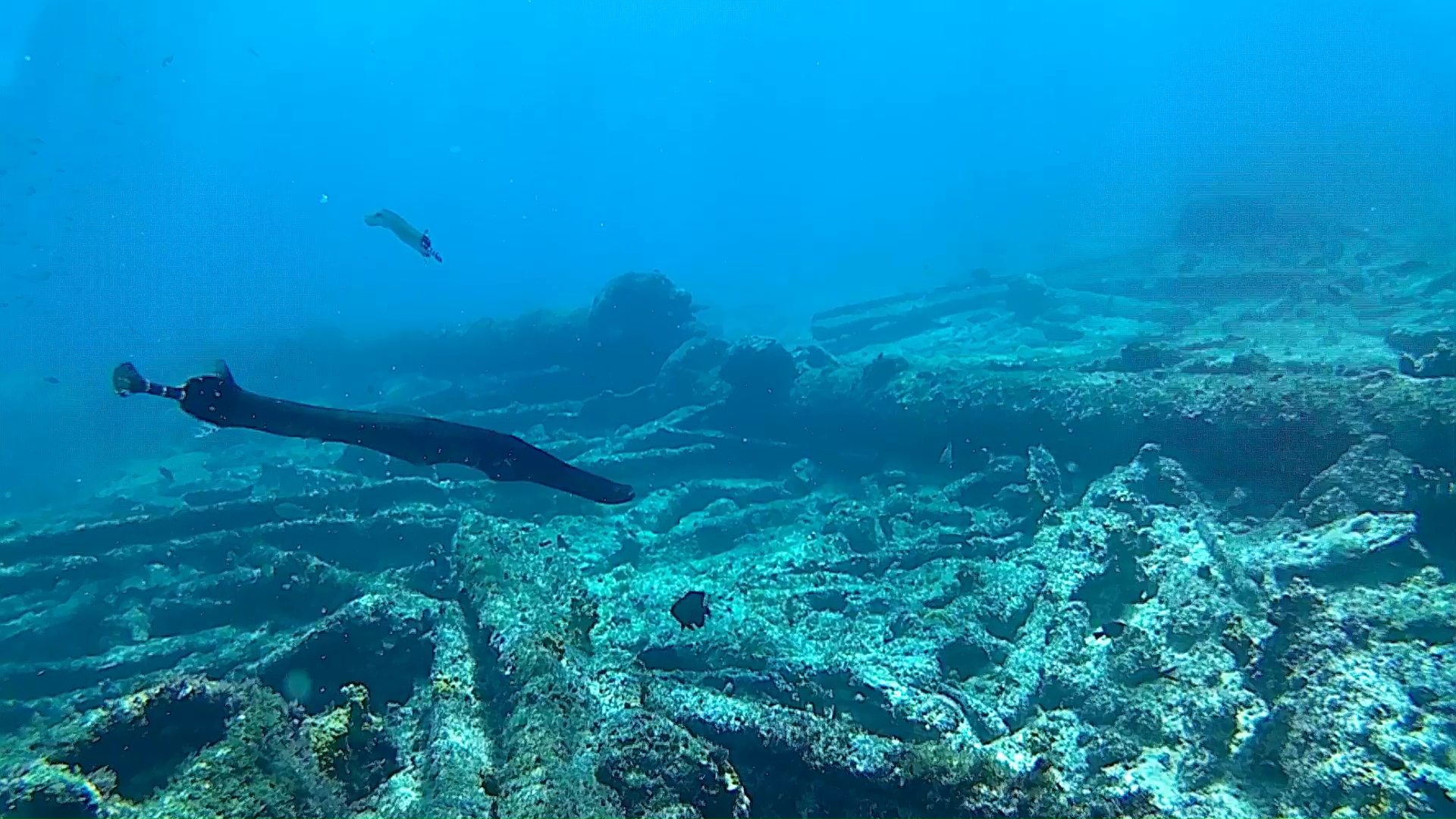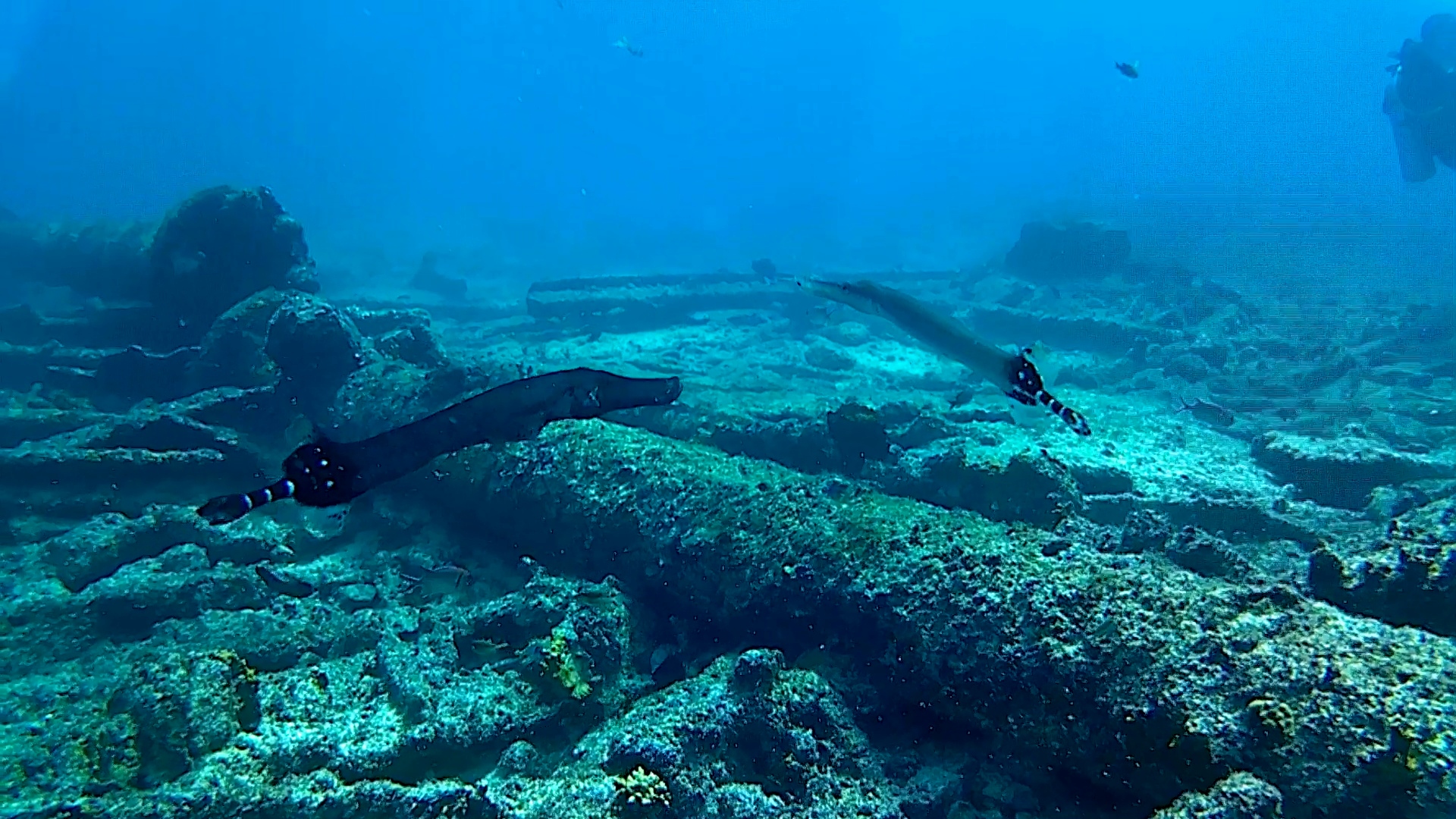Pesce Trombetta - Aulostomidae
Trumpetfishes Aulostomidae Pesce trombetta intotheblue.it

The trumpetfishes are three species of highly specialized, tubular-elongated marine fishes in the genus Aulostomus, of the monogeneric family Aulostomidae. The trumpetfishes are members of the order Syngnathiformes, together with the seahorses and the similarly built, closely related cornetfishes.
Trumpetfishes are found intropical waters worldwide, with two species in the Atlantic and one in the Indo-Pacific. They are mostly demersal reef-dwellers, where one species seems to prefer rocky substrate.
They are relatively large for reef fish, where they reach almost 1 m in length. Bodies of trumpetfish are elongated, rigid, and pike-shaped. Their dorsal and anal fins are almost closely adjacent to the tail, where individual dorsal spines reach midway towards the head region. Similar to most members of the order Syngnathiformes, the bodies of trumpetfish are inflexible, supported by interwoven struts of bone. A distinct trait of the family is their long, tubular snouts ending with somewhat nondescript jaws. Members of the family have the capability to expand their jaws quickly into a circular, gaping hole almost to the body’s diameter when feeding.
Aulostomids are highly carnivorus fish. They stalk their prey by hovering almost motionlessly a few inches above the substrate, inching their way towards unsuspecting prey. Once close enough, they rapidly dart in and expand their jaws rapidly. Opening their tube-like mouths in quick succession creates a strong suction force, which draws prey straight into the mouth. Aulostomids are known to feed almost exclusively on small, schooling reef fishes.
(extract from Wikipedia)


